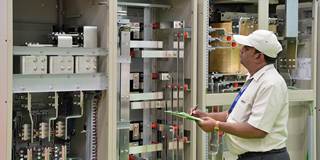Rapid technology-driven displacement of massive amounts of human labor is not a new occurrence. But while we can't know what opportunities will arise from a such shifts, we do know that most countries should focus on ensuring that they can master every new technology and exploit every new opportunity that comes their way.
CAMBRIDGE – What does the future of work hold in store, and how should we prepare for it? The debate so far has focused on developed countries, but it is a question that will affect the entire world.
To pessimists, the introduction of these so-called general-purpose technologies – including 3-D printing, artificial intelligence, and the Internet of Things – threatens the demand for labor; without new forms of social solidarity, such as a universal basic income, the future will be one of widespread destitution. To optimists, the latest technological developments, like others that have propelled humanity forward, promise to deliver unprecedented levels of prosperity.
It is probably impossible at this stage to say which side is right. As the physicist Niels Bohr said: “It is very hard to predict, especially the future.” For a complex system such as the world economy, understanding the past – for example, the massive decline in manufacturing employment in almost all countries over the past two decades – is already hard enough. What is more easily ascertained are the causal links that might determine the outcome.

CAMBRIDGE – What does the future of work hold in store, and how should we prepare for it? The debate so far has focused on developed countries, but it is a question that will affect the entire world.
To pessimists, the introduction of these so-called general-purpose technologies – including 3-D printing, artificial intelligence, and the Internet of Things – threatens the demand for labor; without new forms of social solidarity, such as a universal basic income, the future will be one of widespread destitution. To optimists, the latest technological developments, like others that have propelled humanity forward, promise to deliver unprecedented levels of prosperity.
It is probably impossible at this stage to say which side is right. As the physicist Niels Bohr said: “It is very hard to predict, especially the future.” For a complex system such as the world economy, understanding the past – for example, the massive decline in manufacturing employment in almost all countries over the past two decades – is already hard enough. What is more easily ascertained are the causal links that might determine the outcome.